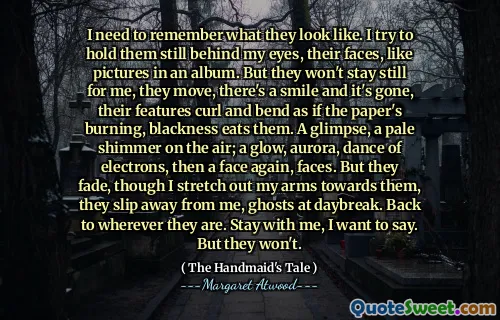Better never means better for everyone, he says. It always means worse, for some.
In Margaret Atwood's "The Handmaid's Tale," the statement "Better never means better for everyone; it always means worse, for some" highlights the inherent inequalities and sacrifices in the pursuit of improvement. It suggests that societal changes often benefit one group at the expense of another, emphasizing that what is perceived as progress for some can lead to oppression or suffering for others. This perspective challenges the idea of universal benefits in societal advancements.
This quote serves as a powerful reminder of the complexities of change in any society. It urges readers to consider the hidden costs of progress and the often overlooked voices of those who may suffer as a result. Atwood's work examines these themes within a dystopian framework, prompting reflection on moral choices and the implications of power dynamics in human experiences.






